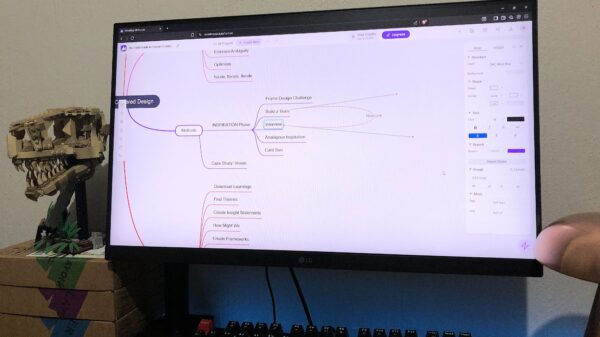Lieutenant Governor Josh Tenorio has made a compelling case for $400 million in federal funding to construct a new public hospital in Guam. This facility aims to enhance healthcare services for both civilian residents and military personnel. During a federal-territorial meeting in Washington, D.C., Tenorio also highlighted the urgent need to reinstate $30 million in Compact Impact appropriations.
In his remarks, Tenorio addressed several pressing issues, including the exclusion of Guam from the $50 billion Rural Health Transformation Program. He emphasized the critical need for access to advanced health records systems, urging immediate action to rectify this oversight. Furthermore, he conveyed the request from Governor Lou Leon Guerrero for the Secretary of Defense to reconvene the Economic Adjustment Committee. Last active in 2010, this committee aims to coordinate federal responses to the impacts of military expansion in Guam.
During the 2025 senior plenary session of the Interagency Group on Insular Areas, Tenorio stressed Guam’s crucial role in national security. “The simple truth is that Guam’s role in global security must be safeguarded and supported—and that support must extend to our people and improve their quality of life,” he stated, representing the governor’s office.
Hospital and Security Needs
The proposed hospital is intended to bolster civilian healthcare and enhance military readiness for potential mass casualty events, natural disasters, and security threats. Tenorio pointed out that Guam is currently under constant pressure from cyberattacks and missile threats, particularly from China and North Korea. “For perspective: the U.S. is investing more than $12 billion in military construction on Guam. Our hospital request is just 3.3% of that total—a modest fraction that will save lives, protect readiness, and counter China’s soft-power influence,” he said.
Tenorio began his address by acknowledging the progress achieved during the current administration, noting improvements in Guam war claims, the earned income tax credit, and increased Medicaid funding, which have addressed disparities in residents’ lives.
Regional Impact and Infrastructure
The new hospital would not only benefit Guam but also serve the Commonwealth of the Northern Mariana Islands and the Freely Associated States, thereby reinforcing regional stability. Tenorio highlighted the necessity for improved air service, reliable communications, and commercial transport to support growth and meet security requirements. “By contrast, a U.S.-built hospital on Guam would demonstrate that America invests in its people, its readiness, and the resilience of its allies,” he remarked.
Tenorio also expressed concerns regarding potential federal budget cuts that could affect the Guam Environmental Protection Agency, coastal management, and historical preservation programs. He urged support for Guam’s $156 million allocation from the Broadband Equity, Access and Deployment Program, emphasizing that broadband is vital for both defense and disaster response. He called for flexibility in using these funds for cybersecurity and middle-mile infrastructure.
Compact Impact and RECA
In his discussion, Tenorio reiterated the need to reinstate the $30 million Compact Impact appropriation, detailing that Medicaid enhancements for citizens from Compact of Free Association (COFA) nations do not cover the substantial costs associated with education and public safety. He advocated for separate funding for orientation grants, which are currently drawn from Guam’s limited Technical Assistance Program.
Additionally, Tenorio pressed for Guam’s inclusion in the Radiation Exposure Compensation Act. He asked administration officials and congressional leaders to consider incorporating this inclusion for Guam in the National Defense Authorization Act or another suitable legislative initiative. He noted that U.S. nuclear testing in the Marshall Islands from 1946 to 1962 exposed Guam residents to harmful fallout, resulting in long-term health consequences.
The lieutenant governor’s appeal underscores the urgent need for federal support to address Guam’s healthcare and security challenges, reinforcing the territory’s vital contributions to U.S. national defense.





































































